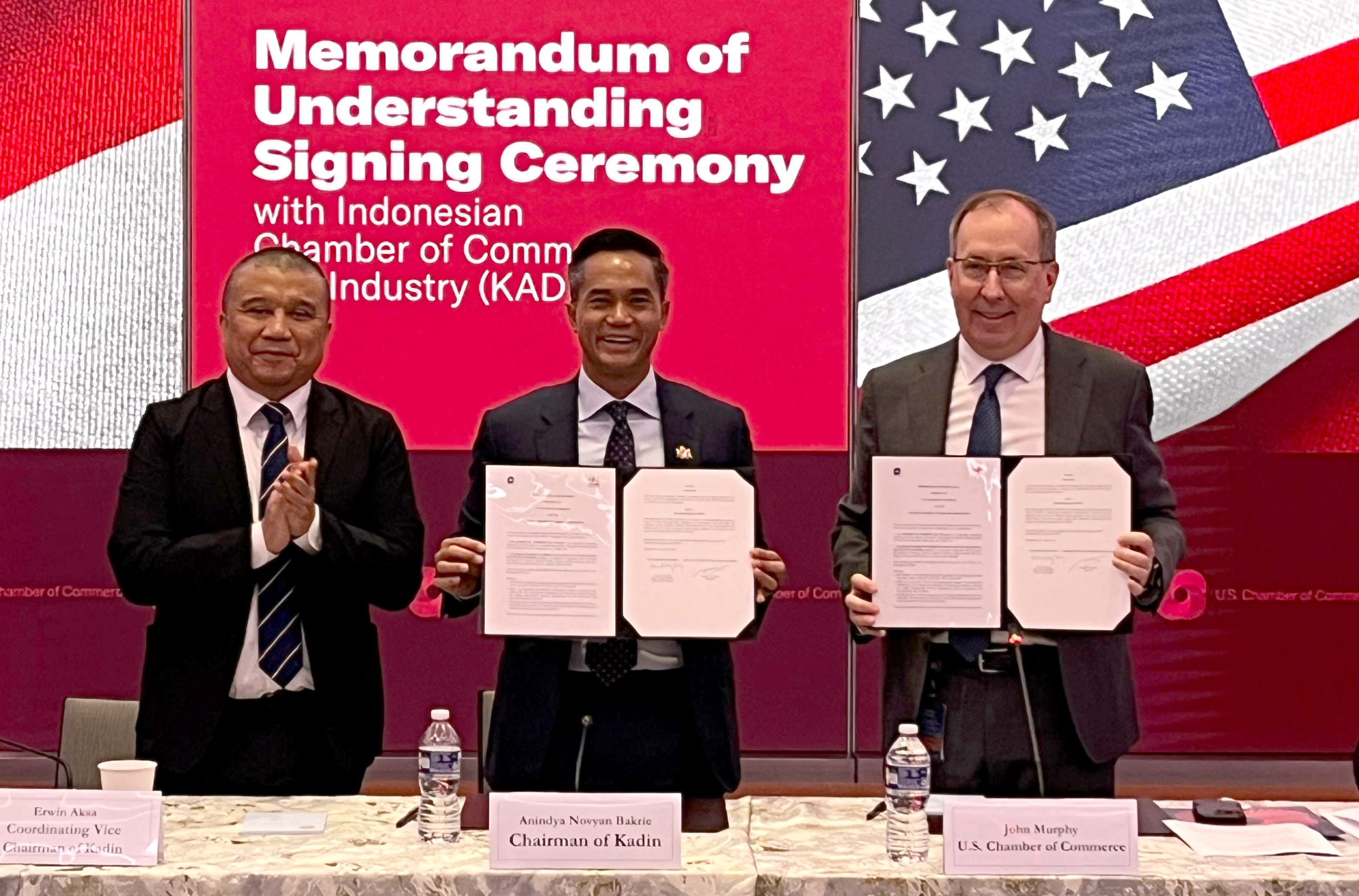Indonesia Confident in U.S. Tariff Talks, Eyes Bilateral Trade Expansion
Main Takeaways
|
JAKARTA, Investortrust.id — Indonesia’s top business leader has voiced confidence that negotiations with the United States over new import tariffs will conclude on schedule, stressing the potential for expanded bilateral trade between the two countries.
Anindya Novyan Bakrie, Chair of the Indonesian Chamber of Commerce and Industry, known as Kadin Indonesia, made the remarks during an interview with CBS News anchor Nancy Cordes in Washington, D.C., on Friday, May 2, 2025.
“Since the [tariff announcement by President Trump on] Liberation Day, Indonesia has been focused on forging the right agreement between the two countries. As a representative of the business sector and a strategic partner to the Indonesian government, I am aware of the constructive meetings our government has held with its U.S. counterparts,” Anindya said.
He added, “I believe the negotiations can be concluded within the timeframe—90 days, until July 9.”
In the interview, Anindya emphasized that both the Indonesian government and Kadin are eager to deepen trade relations with the U.S., aiming to rebalance the current trade surplus in Indonesia’s favor.
To address this imbalance, he proposed that Indonesia increase imports of U.S. commodities such as oil, gas, soybeans, and dairy products. In return, Indonesia is seeking to expand exports of footwear, medical equipment, textiles, and apparel.
According to Anindya, Indonesia currently holds a trade surplus of around $18 billion with the U.S. To compensate for this, he said the Indonesian government is considering a $40 billion allocation to support increased U.S. exports to Indonesia.

In a separate bilateral event, Anindya and John Murphy, Senior Vice President and Head of International at the U.S. Chamber of Commerce, signed a Memorandum of Understanding to enhance trade cooperation. They were joined by Kadin’s Vice Chair for Organizational, Communication, and Regional Empowerment Affairs Erwin Aksa.
“The two chambers of commerce—Indonesia’s and America’s—share the same goal: to achieve an equilibrium in trade flows. The U.S. wants to sell more soy, grains, and beans, in addition to oil and gas. On our side, we want to sell more shoes, clothing, and electronics,” Anindya said. “Over the past two days, I’ve met with stakeholders from national cotton, soybean, and dairy boards.”
When asked about the challenges in deciphering U.S. President Donald Trump's demands in the negotiation, Anindya acknowledged the complexity of the talks, with many variables at play. However, he underscored the importance of mutual trust as the foundation of any agreement.
He also highlighted Indonesia’s growing capacity not just as a trade partner, but as an investor in the U.S., thanks to the establishment of the Indonesia Investment Management Agency, or Danantara—the country’s sovereign wealth fund.
“Danantara manages around $900 billion in assets, generating about $10 billion annually. This gives us the potential to become a key investor in the U.S., as long as it aligns with our supply chain strategy,” he noted.

